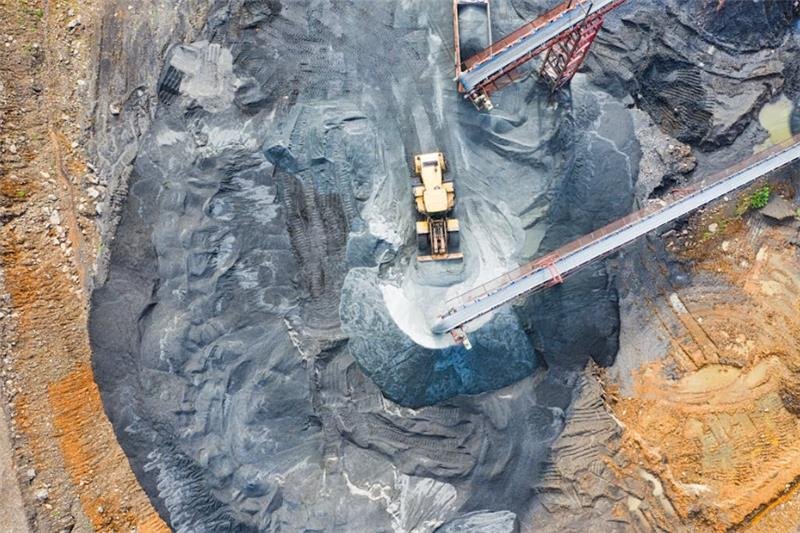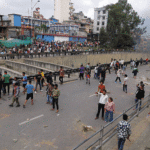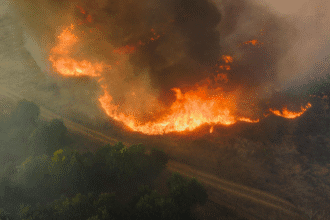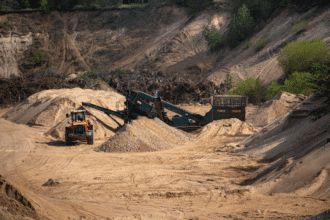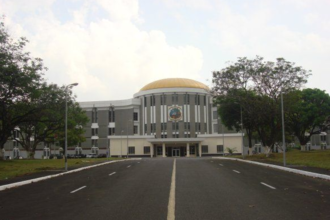Zambian farmers in Lusaka sued two mining companies with ties to China for $80 billion. They say the corporations triggered an “ecological disaster” when a dam broke in the copper-rich area. In February, acidic trash spilled into rivers and streams. Because of this, a lot of fish died, crops failed, and clean water disappeared. This tragedy has affected almost 300,000 homes.
Sino Metals Leach Zambia and NFC Africa Mining are two of the companies identified. They are both owned by the Chinese government. The High Court in Lusaka heard the lawsuit from 176 farmers who said that the dam failed because of bad engineering, bad construction, and bad management. At the same time, the U.S. Embassy sent out a health advisory about dirty water and soil.
What Made the Dam Fall Apart?
Court filings say that a tailings dam, which was supposed to retain mining waste, broke. Sino Metals Leach Zambia owns the building, but NFC Africa Mining leases the property where it is located. Experts say that the problems are due to poor design, insufficient building codes, and poor operational oversight. The spill let out millions of liters of corrosive stuff.
Villagers say they didn’t realize how dangerous the waste was until a few days after it spread. Water sources in the area become hazardous. Wells were even dirtier. For safety, crops along the riverbanks had to be destroyed. Here is the link to our article on Environment Threat Grows.
What are the effects on health and the environment?
Villagers are reporting scary symptoms, including blood in their pee, trouble breathing, and heaviness in their chest. Fish died in the water below. Irrigation canals killed crops. The Kafue River, a big river, took the worst of it. Experts are worried about the long-term effects of soil degradation and poisonous groundwater.
Officials tried to lessen the damage. People dropped liming substances into streams and rivers. There is more monitoring now. But a lot of people argue that the damage has already been done.
What Are the Legal Claims and Requests?
In Lusaka, the 176 farmers are asking that Sino Metals and NFC Africa Mining pay for an $80 billion compensation reserve that the government would oversee. They want “environmental reparations” and “full compensation” for the people who were hurt.
They also want a $20 million emergency fund to pay for things like health care, environmental inspections, and cleaning up the water. Oversight is at the heart of their claim; the farmers seek independent proof of cleanup and regular implementation of environmental law. Here is the link to our article on Wildfire Weather Alert.
What Are Officials Doing?
Sino Metals has admitted to a spill of roughly 50,000 cubic meters and says they contained it soon after they found it. Farmers, on the other hand, disagree with the timetable and size. The firms have not yet formally addressed the case.
The Zambian government has seen the U.S. Embassy’s health warning, but its spokesperson has downplayed the ongoing concerns, saying that there is no longer an urgent health threat across the country. At the same time, local advocacy groups are calling for more severe rules, more openness, and more responsibility.
Final Thoughts
The Zambia mine disaster highlights how environmental collapse can devastate communities in mining regions. It shows how ecological damage, public health emergencies, and economic loss are all linked. As this litigation goes on, Zambia needs to ensure stronger oversight and fair compensation for affected citizens. The accident at the mine is more than just a legal battle; it’s a wake-up call. And those harmed deserve justice, restoration, and respect.


